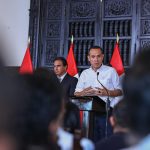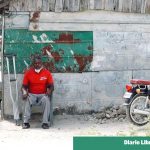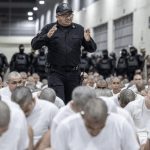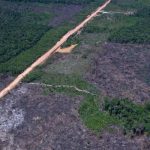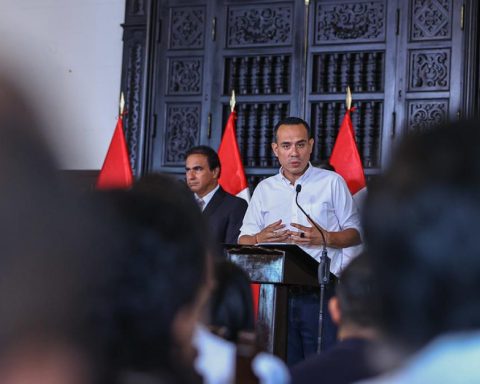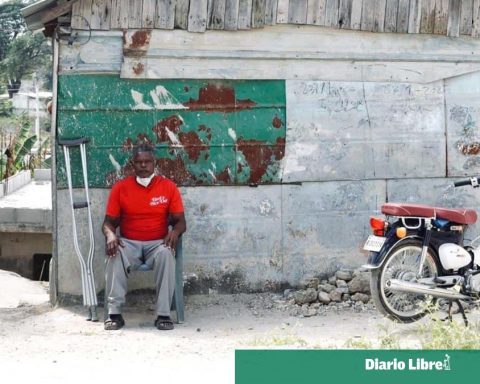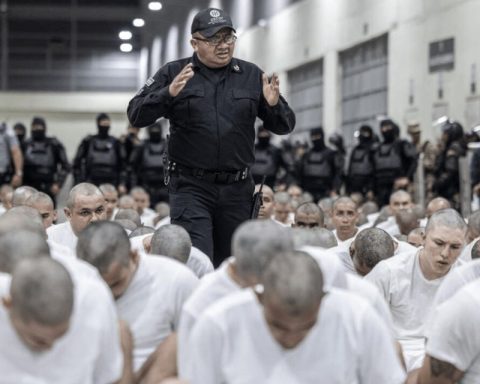The Daniel Ortega regime has been using, since 2018, a Russian technological tool —called System for Operations Research Activities (SORM, for its acronym in Russian)- to spy on Nicaragua. According to a report by US researchers Douglas Farah and Marianne Richardson, access to this technology has been part of the operations of a network of groups and individuals “with deep ties” to Russian intelligence and the former Soviet KGB secret police, “specialized in cryptology and cybernetic activity.”
The report, titled “Dangerous Alliances: Russia’s Advance in Latin America”, details that this network has made available “multiple advanced surveillance systems of the Russian State, which are now used by authoritarian regimes in Nicaragua and Venezuela.”
“This Russian technology is responsible for increasing the repressive capacity of the most authoritarian, anti-American sectors and less transparent regimes,” says the report prepared last December by the Institute for National Strategic Studies of the National Defense University.
The SORM platform is used by Russia and other former Soviet nations “for phone and internet surveillance, and allows operators to monitor credit card transactions, email, phone calls, text messages, social media, Wi-Fi networks, and posts.” in forums”, according to information from the United States Government, provided by Farah to CONFIDENTIAL.
A joint investigation of the organizations agentura, CitizenLab and Privacy Internationalindicates that “SORM’s tactical and technical foundations were developed by a KGB research institute in the mid-1980s.”
“Initially, SORM was installed on analog phone lines. As new technologies were developed, SORM did too”, highlights the research published in the digital medium Wire.
“SORM has been updated. You are ingesting new data types. It is being used as Moscow’s main tool to spy on the country’s political protesters,” they explain in the article.
A report from the Argentine media Infobae reveals that Russian legislation allows “the Kremlin to force national ISPs (Internet Service Providers) to buy and install the ‘probes’ used by the SORM system, which authorizes the FSB to monitor Internet traffic, including all communications on line”.
SORM-3, the version used by the dictatorship
According to the US government, the system It was first established in Russia in 1996 and is licensed by the Federal Security Service (FSB), which is the Russian intelligence agency.
An article from the international NGO Access Now specifies that “there are three versions of the system in use, allowing for different levels of surveillance.” SORM-1 monitors telephone traffic, SORM-2 online traffic, while SORM-3 can supposedly monitor all forms of communication and accommodate up to three years of storage.
The intercepted and stored information allows Russia to create an “internet portrait” of spied citizens.
According to an interview by Farah with the program This week, the Ortega and Rosario Murillo regime uses the SORM-3 version. “We know that Russia has provided a kind of intelligence equipment for a system called Protei, which is one of the most advanced that can track text, telephone, WhatsApp, surveillance, and that Daniel Ortega has acquired this equipment.”
However, the analysis of the organizations and the journalistic reports on SORM do not indicate that the system has the capacity to violate instant messaging applications, with end-to-end encryption, such as WhatsApp and Signal.
He End-to-end encryption allows data—messages, audio, photos, videos, or other files—exchanged by users to not be seen by third parties. Although the WhatsApp encryption does not protect certain information such as profile picture, dates, group names and group descriptions.
System produced by company Protei
“(The system) is a super efficient thing, which is managed from the Russian Ministry of Internal Affairs. They are the owners of that company (Protei)”, commented the president of IBI Consultants and who covered Latin America as a journalist for the Washington Post in the 1990s.
The surveillance software is produced by the company Protei Special Technologies, which is a subsidiary of NTC Protei, “a cybersecurity firm that has contracted with Russian military and intelligence agencies to provide them with cybersecurity and surveillance services,” according to the US.
On its website, Protei describes itself as “a leading provider of telecommunications solutions for a wide variety of products including core network, roaming, messaging, value-added service and customer service.”
It operates in Europe, Central Asia, Latin America —Mexico, Colombia and Venezuela—, Russia, the Middle East and Africa.
CONFIDENTIAL sent an interview and information request to the email address, which Protei provides on its website. At the close of this article there was no response.
Training for the National Police
According to the Farah and Richardson report —which devotes an entire chapter to the Russian connection to the Ortega-Murillo regime and the repression in Nicaragua—, when civic protests against the dictatorship broke out in April 2018, against Russian colonel Oleg Surov, director of the Russian police training center in Managua, he was ordered to train a select group of Nicaraguan police officers in classes titled “Modern Means and Methods to Combat Extremism and Terrorism.”
The Russian military provided “digital and technological surveillance” techniques which, according to the document, improved the capacity of the Nicaraguan regime to “repress and control civil society.”
As part of the follow-up to that initial training, three years later, 20 officers also attended another course on “fighting computer crimes,” given by the Russian Interior Ministry, specifically focused on surveillance techniques.
“Since then, Ortega’s main enforcer and national security adviser, Nestor Moncada Lauwho was sanctioned by the United States Government for violently repressing protests in 2018, established a new permanent structure within the Nicaraguan National Police to carry out intelligence tasks and surveillance activities with Russian advisers,” Farah’s investigation reveals. and Richardson.
That surveillance center would be located on the second floor of the building of the Institute of Telecommunications and Posts (Telcor), whose general director is Nahima Díaz Flores, daughter of the police chief, Francisco Díaz, in-law of Ortega and Murillo.
Regime Surveillance Methods
The SORM system adds to other surveillance methods used by the regime and revealed by CONFIDENTIAL. Last October, a report was published on the existence in Nicaragua of 39 “false antennas” for electronic surveillance that allow users to capture private information.
The publication, based on analysis by South Lighthouse organization –dedicated to investigating technologies at the service of human rights– and the study Fake Antenna Detection Project (FADe Project), detailed the sites where these “false antennas” or IMSI-Catcher devices operate, among which the surroundings of the Hugo roundabout stand out. Chávez or the International Airport, in Managua.
IMSI-Catcher devices they act as “fake antennas” that intercept phone signals and capture traffic from mobile devices. This includes conventional calls, destination or origin of these calls, text messages, SIM Card code, phone location and in some cases, direct listening of the phone conversation.
In October 2018, CONFIDENCIAL published that the Ortega dictatorship bought Israeli private tech companies spying and intelligence-gathering programs, hijacking all activity on a smartphone, such as the user’s location, sites they visit, and personal contacts. In addition, these technological tools can turn the computer into a secret recording device.
According to an investigation by the Israeli newspaper Haaretzthese programs have been used in various countries, including Nicaragua, to “locate and detain human rights activists, persecute members of the LGBT community, and silence citizens who criticized their government.”
In 2017, the Citizen Lab Institute of the University of Toronto, Canada, included Nicaragua among Latin American countries that spy on their citizens.







